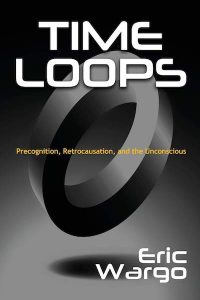
 Radio Misterioso
Radio Misterioso Eric Wargo – Time Loops and Retrocausality
Jan 16, 2019
Eric Wargo, author of the book 'Time Loops', discusses the concept of retrocausality and its implications in physics and other sciences. Topics include precognitive dreams, the role of dreams in survival, quantum phenomena in biological processes, and the connection between retrocausality and quantum mechanics. The podcast explores the shift in scientific paradigms and the building up of anomalies. An exciting and controversial discussion that challenges conventional thinking.
Chapters
Transcript
Episode notes
1 2 3 4 5 6 7 8 9 10 11
Introduction
00:00 • 2min
Exploring a Domain of Pure Information and the Unknown
01:52 • 2min
Exploring Retrocausality and Time Loops
03:49 • 31min
Circular Nature and Contagion
34:42 • 2min
Precognitive Dreams and the Power of Recording
36:35 • 26min
Quantum Phenomena in Biological Processes
01:02:06 • 17min
Retrocausality and the Pioneering Work of Wheeler
01:18:38 • 21min
Retrocausality and Quantum Mechanics
01:39:43 • 10min
Dreams and Survival
01:50:07 • 7min
Discussing Quantum Physics and Schrodinger's Cat
01:57:00 • 2min
Concluding the Interview and Miscellaneous Remarks
01:58:42 • 4min

